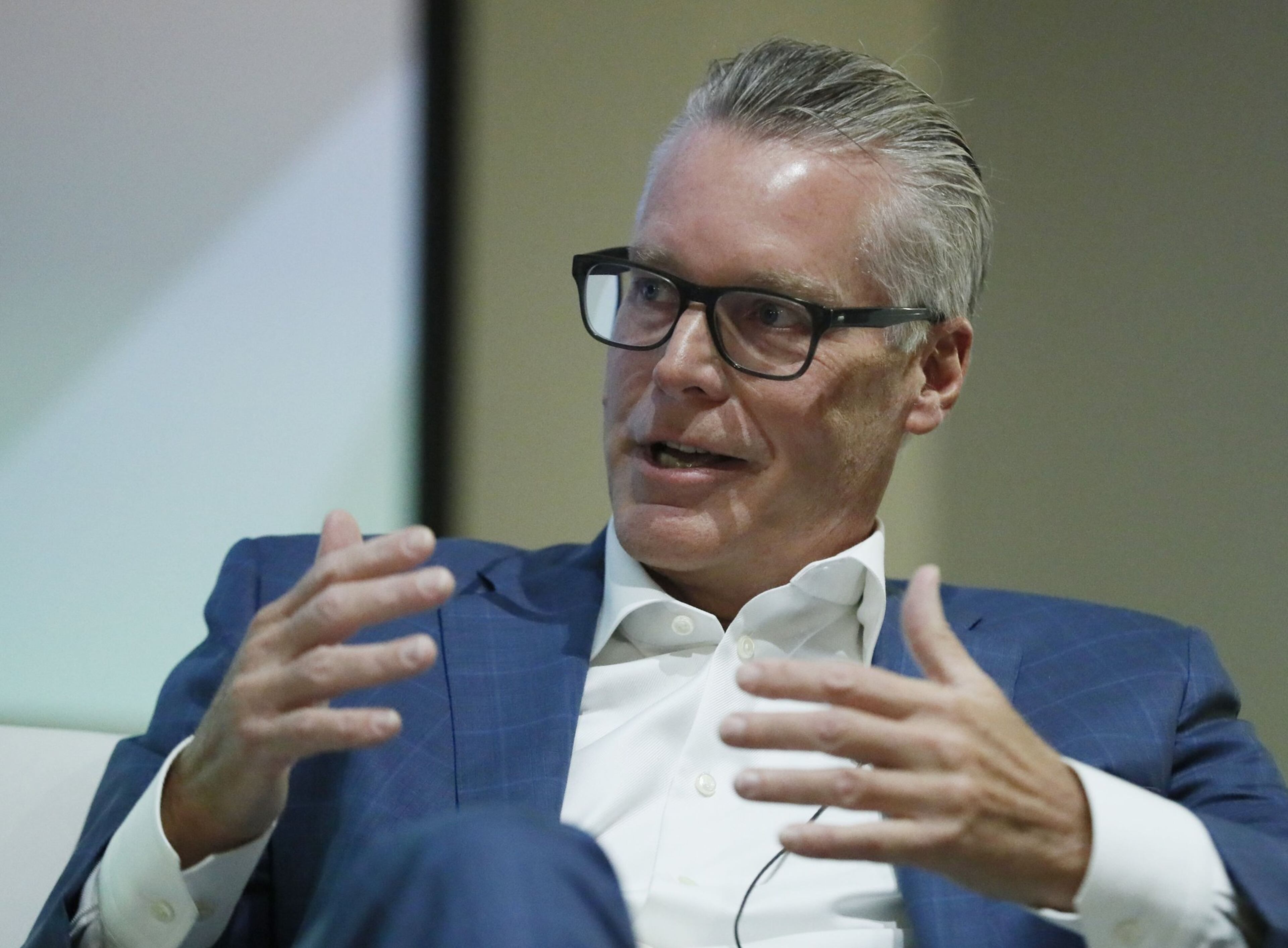Delta CEO: Environmental issues are ‘existential threat’ to growth

As "flight shaming" gains steam in Europe, Delta Air Lines CEO Ed Bastian said concern about the environmental impact of air travel is increasingly coming to the United States.
"Environmental stewardship is the existential threat to our future ability to grow. There's no question about that," Bastian said at the company's investor day Thursday in Atlanta. He spoke in response to a question from Cowen analyst Helane Becker about backlash in Europe and the prospect of governments raising taxes on airlines to discourage expanding tourism.
“You see it happening in Europe,” Bastian said. “It’s increasingly coming here to the U.S.”
Airlines account for about 2.5 percent of carbon dioxide emissions. But as more people travel around the world, the demand is driving airline industry growth — and growth of the industry's carbon footprint globally that is outpacing gains in fuel efficiency.
Airlines for decades have had a built-in motivation to reduce their fuel use.
That's because jet fuel expense is typically one of the top two expenses for airlines, along with labor. When the cost of a barrel of oil is high, fuel can become an airline's largest expense, surpassing the cost of paying employees.
Airlines' interest in using less fuel has for years driven them to look for myriad ways to reduce weight on aircraft to limit fuel burn, to turn off the engines when planes are parked, and to install winglets to reduce drag.
Newer airplanes and jet engines are more fuel-efficient, allowing airlines to reduce the use of fuel as they buy new planes and retire gas-guzzling older ones.
Bastian expressed an interest in talking more about what airlines do on environmental stewardship.

"We're seen in the world's eyes as somewhat of a dirty industry, yet we have done a tremendous amount of good," including adopting new engine technology, Bastian said. "We have been terrible advocates of our own cause."
Bastian said Atlanta-based Delta has not increased its carbon footprint since 2012.
"But we gotta do more," Bastian said. "I think you're going to see us becoming more of an active voice in the conversation in the coming year. The 2 percent fuel efficiency that we're running per year is great, but it's not enough to get us to where we need to be."
Bastian's comments come after remarks on the issue in recent days by the head of a global airline association based in Geneva.
International Air Transport Association CEO Alexandre de Juniac said his group has not spoken enough to the public about its environmental commitments, including a pledge to improve fuel efficiency by an average of 1.5 percent annually between 2009 and 2020, and to cut emissions in half from 2005 to 2050, according to an Associated Press article.
"I don't know that we'll ever become Europe," Bastian said. "That's how you get into flight shaming. You're not talking about the good that travel does ... how you're renewing the Earth's resources. And that's what you're going to see us do."

